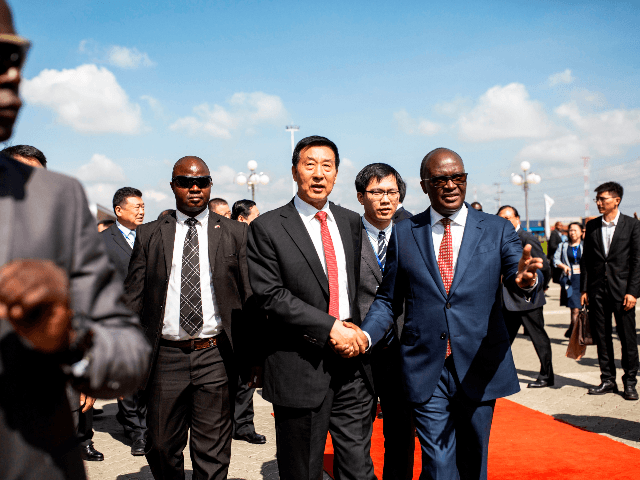Kenyans have long complained that the massive Standard Gauge Railroad (SGR) project financed by loans from China’s Belt and Road (BRI) infrastructure project was an expensive indulgence that created few good jobs for local people because Chinese managers and engineers were brought in to handle the work.
Documents made public this week from the Chinese contractor that handled the project revealed that the number of workers imported from China was much higher than previously admitted, and the cost of their high salaries and very comfortable accommodations was borne by Kenyan taxpayers.
The Daily Nation wrote on Wednesday that “Kenyan taxpayers paid dearly for the comfort of Chinese employees brought in to build the first phase of the standard gauge railway, including furnishing their houses and paying for their domestic staff.”
Although the China Road and Bridge Corporation (CRBC) previously insisted only 2,000 foreign workers were brought in for the project, the true number appears to be 5,795. They were paid far more handsomely than their Kenyan co-workers, including overtime benefits the Kenyans did not receive.
The CRBC did not reveal the true number of local employees it hired, but the Daily Nation suspected it was considerably lower than the 19,858 Kenyan workers advertised by CRBC.
As for the cost of their accommodations, the Daily Nation found that senior Chinese engineers were provided with furnished houses and furnished offices paid for by Kenyan taxpayers.
The cost of maintaining just the top five CRBC engineers worked out to over $12 million in U.S. dollars, an exorbitant sum for Kenya, which has a growing economy but high unemployment, high poverty rates, and a per capita income of about $1,500 per month. The cost for maintaining junior staff in temporary housing was over $475,000, an expense unhappy Kenyans will argue could have been avoided by using more local labor.
The Kenyan public had been assured the Chinese contractors would be living frugally inside converted shipping containers, but it turned out the government spent over two million dollars just on entertaining them. Astoundingly high prices were paid to import office equipment, radios, generators, and other equipment that could have been purchased far more cheaply in Kenya.
Adding insult to injury, the Tanzanian side of the international railway was constructed to much higher standards at far less expense.
Even those outrageous inflated costs did not capture the full extent of the scandal, as critics wondered how many ugly surprises might be lurking deeper inside the books now that these inflated peripheral expenses have been uncovered.
Furthermore, the Daily Nation noted the additional cost of interest on the loans to finance the SGR, the financial hit from a 20 percent depreciation in the value of the Kenyan shilling since the project was launched, taxes, import fees, and complaints of corruption and overpricing in the acquisition of land needed for the railway. The money from those loans was shifted directly from Chinese state banks to the China Road and Bridge Corporation, bypassing opportunities for Kenyans to generate tax revenue and profit from financial opportunities created by the immense transfer of funds.
“Not many companies have earned billions of shillings in Kenya tax-free like the SGR contractor,” the Kenyan paper noted.
The Daily Nation argued in an editorial published on Wednesday that Kenyan officials were much too quick to sign on with the Chinese contractor at the dawn of the SGR project ten years ago, led astray by greed and bad advice from shady middlemen while feasibility studies were still underway and African contractors were still working on proposals.
A few of those middlemen were so shady that no one today is quite certain who they are. Some other key players in the early days of the SGR are long gone thanks to corruption allegations. Few of the architects of the deal with China have enjoyed the financial benefits they were expecting.
The SGR revelations were embarrassing enough to make Kenyan transportation secretary James Macharia and top officials of the Kenya Railways Corporation think better of attending a ceremony on Tuesday marking 1,000 days of operation for the railway. Macharia sent an underling to speak in his place, but even the underling decided to disappear from the event only a few minutes after it began.
Kenyan railway unions are pressing Macharia to disclose the full text of all agreements signed between the Kenyan and Chinese governments. The unions are also challenging provisions of the agreement that effectively give the Standard Gauge Railway a monopoly on cargo imported through the port of Mombasa, freezing other Kenyan transportation businesses out of the lucrative trade.
“The government behaves as though SGR is the only infrastructure which has ever been invested in and forgets that transportation companies have been a great source of revenue,” the Kenya Transporters Association argued in its petition to the transportation secretary.

COMMENTS
Please let us know if you're having issues with commenting.